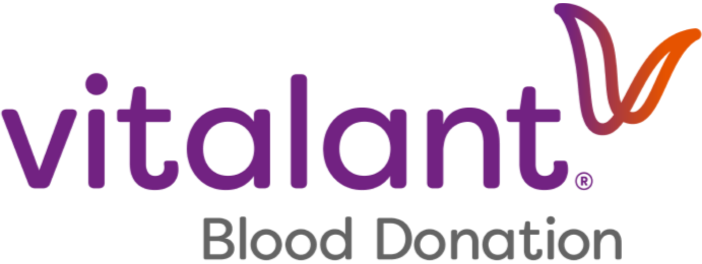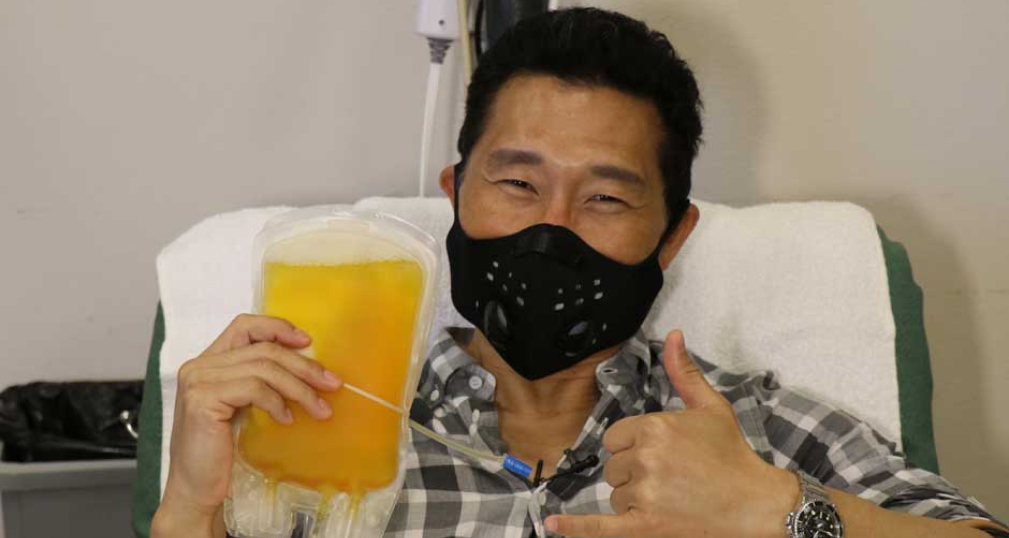Actor Daniel Dae Kim’s convalescent plasma donation was featured May 1 on ‘The Call to Unite’—a 24-hour live streamed event that celebrates our shared humanity during the coronavirus pandemic. Special Olympics chairman Tim Shriver organized the event, which showcases celebrities like Kim, Oprah and Julia Roberts, alongside former presidents and faith leaders.
After fully recovering from COVID-19, Kim flew from his home in Hawaii to give his vital plasma donation at a Vitalant blood donation center in Ventura, CA. Convalescent plasma contains antibodies that are active against the disease to give patients’ immune systems the ability to attack the virus.
"I learned about the Mayo Clinic being named the national program for this effort and I wanted to do my part to help those who are still battling the illness," said Daniel Dae Kim. "I hope those who can will consider joining me to help other Americans in need—either through the Mayo Clinic, Red Cross or their local blood donation center, like Vitalant." Kim plays a doctor in the TV shows The Good Doctor and New Amsterdam and was also on Lost and Hawaii Five-O.
In early April, Vitalant, the nation’s largest, independent nonprofit blood service provider, launched a program in collaboration with hospital partners, the Mayo Clinic and the American Red Cross to treat COVID-19 patients with convalescent plasma. The Food and Drug Administration (FDA) has identified and approved convalescent plasma treatment as an "emergency investigational new drug."
Kim announced on Instagram March 19 that he had tested positive for COVID-19 after returning to his home in Hawaii from a work trip in New York. He soon developed a sore throat, chest tightness, body aches and a fever. He was diagnosed with COVID-19 after going to a drive-through testing clinic in Honolulu. For the next several weeks, Kim self-isolated at his home to protect his family while receiving treatment remotely from his physician.
"This disease is unlike anything I’ve ever experienced," said Kim. "Now that I've recovered, my plasma may contain antibodies that will help people who are fighting COVID-19 right now. I'm glad I'm able to help those who are still fighting their own battles."
Currently, there are no vaccines or proven treatments for COVID-19 because the virus is so new. Although trials for a vaccine are underway, it is expected to be many months before one is approved.
"Our hearts go out to those who have suffered from the disease or lost loved ones. Daniel is setting a great example for those who have recovered. Donating convalescent plasma holds the additional promise of helping a critically ill COVID-19 patient turn the corner," said Cliff Numark, Vitalant's chief of marketing. "This procedure complements what is needed every day: blood donations help patients for a variety of reasons—from surviving trauma, to undergoing chemotherapy to receiving an organ transplant."
Vitalant is seeking convalescent plasma donors to help patients. Eligibility criteria are:
- Prior diagnosis of COVID-19, documented by a laboratory test or a positive serological test for the SARS-CoV-2 antibodies, taken after recovery
- Complete resolution of symptoms for at least 14 days
- Meet all other current FDA donor eligibility requirements to donate plasma
Even with these requirements, there may be additional tests or other criteria required. In some instances, those who have recovered from COVID-19 may be able to donate, even if they did not have an initial laboratory test. For more information, please call 866-CV-PLSMA (866-287-5762).
"As this life-transforming program continues to expand, we encourage those who have recovered from COVID-19 to visit our website and complete the application form," Numark added. "It's an easy first step toward helping patients battling this devastating disease."
Vitalant will only accept donors who meet all FDA-required donor eligibility criteria and are symptom-free for at least 14 days. Potential donors can only donate if they have applied and have been accepted to the program.

